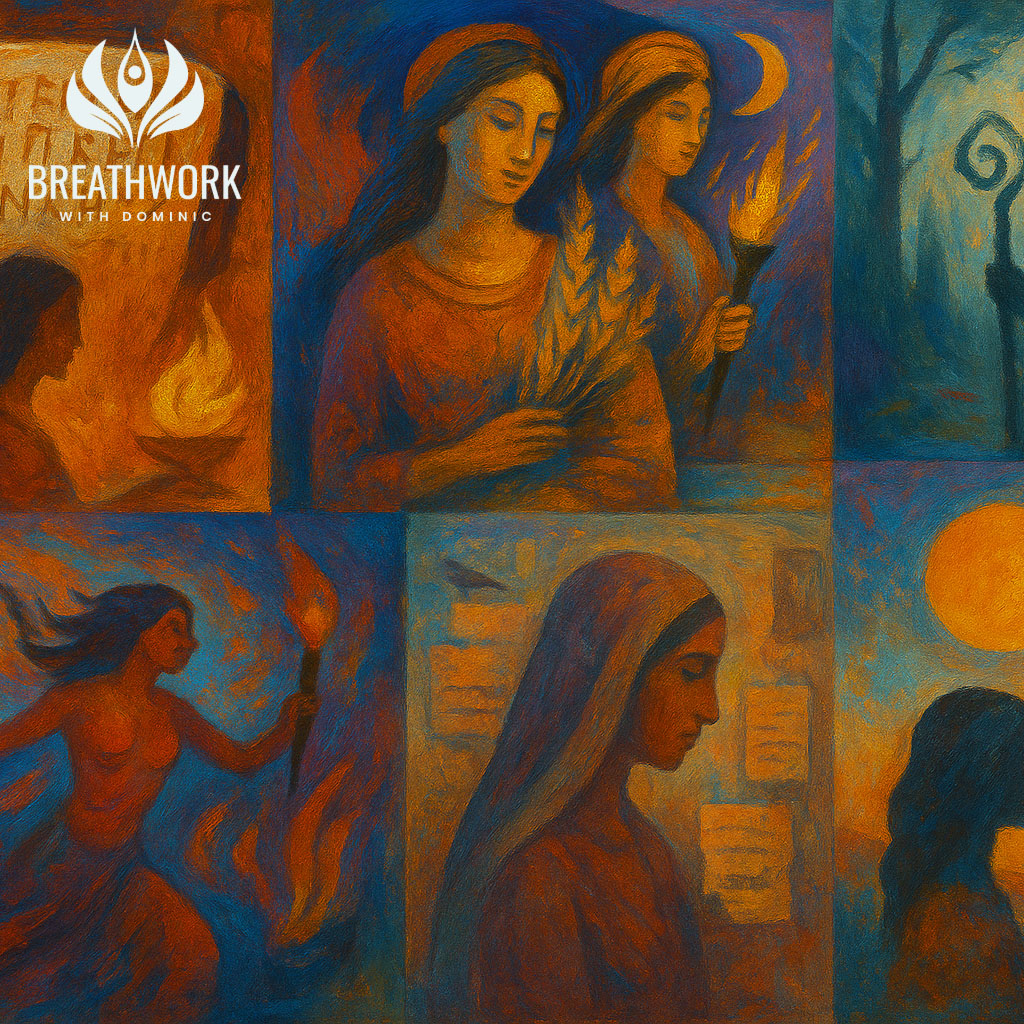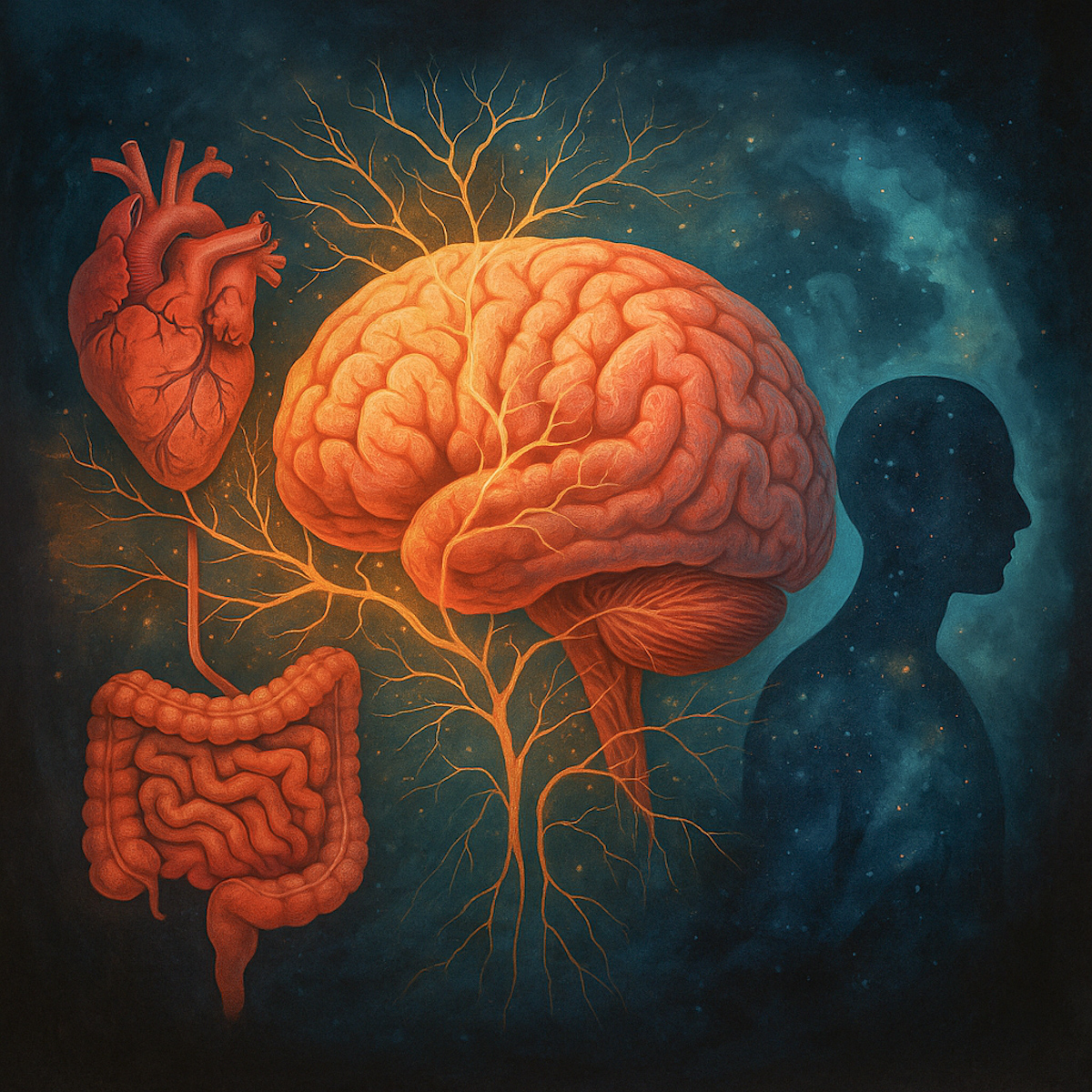Memory is normally defined as something personal — a storehouse of experience bound to the brain (and some say the body/SOma) of the individual who lived it.. But what if that boundary is more porous than we think? What if memories — or at least their emotional imprints — can be passed down across generations?
What the Science Suggests
In 2013, a now well-cited mouse experiment shook this standard assumption. Researchers trained mice to fear the smell of cherry blossoms by pairing it with mild electric shocks. Strikingly, the next generation of mice — who had never encountered the shocks — also recoiled at the scent. When scientists examined their DNA, they found changes in the sperm that altered the expression of olfactory receptor genes. Trauma, it seemed, had left a chemical signature that the offspring inherited.¹
Similar findings have emerged elsewhere. Roundworms (C. elegans) have passed down avoidance behaviors for multiple generations through small RNAs.² In humans, the children and grandchildren of Holocaust survivors show epigenetic changes linked to stress responses, suggesting that extreme trauma can echo through biology long after the original event.³ These aren’t “memories” in the narrative sense — no detailed storylines are inherited — but rather biochemical echoes: fears, sensitivities, and predispositions shaped before birth.
Beyond the Laboratory
If this is true, then we may carry more than our own scars. Our vulnerabilities, anxieties, even some instinctive aversions might belong partly to our ancestors. And perhaps our resilience, too. This challenges the idea of the “self” as a closed system. Instead, each of us could be understood as a living intersection — where personal experience meets the reverberations of lives we never knew but nonetheless carry.
And of course, this is where epigenetics enters the picture. The science of how circumstances — environment, stress, nourishment, even emotional states — can switch genes on or off without altering the underlying DNA. In that sense, what we “inherit” is not just a fixed script but a dynamic potential, shaped by both past and present. The subject deserves its own article, so I’ll explore it separately — but for now, it’s enough to see how memory, biology, and environment are more entwined than our current paradigm suggests. It also suggests that we can change more than we believe through changing our diets, circumstances, and emotional states.
It raises new contemplations:
- Is healing always just personal, or is it a way of tending to the unprocessed echoes of those who came before?
- Could practices of mindfulness, breathwork, or ritual be ways of softening not only our own patterns, but ancestral imprints coded into our biology?
- If trauma can be transmitted, can joy, strength, or wisdom be as well?
A Hypothesis, A Question
Perhaps memory is not just a private vault but also a stream — with currents branching and rejoining across generations. The eddies of fear and love, loss and connection, wisdom and joy may be inscribed into the very code of life, rippling forward through time from one generation to the next until they are transformed or passed on once again.
The question then becomes: if we are indeed carriers of ancestral memory, how do we consciously participate in this inheritance? And could we, by choosing awareness and healing in our own lives, alter the memories passed on to those yet to come?
References
- Dias, B. G., & Ressler, K. J. (2014). Parental olfactory experience influences behavior and neural structure in subsequent generations. Nature Neuroscience, 17, 89–96.
- Rechavi, O., Houri-Ze’evi, L., Anava, S., et al. (2014). Starvation-induced transgenerational inheritance of small RNAs in C. elegans. Cell, 158(2), 277–287.
- Yehuda, R., Daskalakis, N. P., Bierer, L. M., et al. (2016). Holocaust exposure induced intergenerational effects on FKBP5 methylation. Biological Psychiatry, 80(5), 372–380.
Disclaimer: I research, compile data and edit the published version myself and I use ChatGPT throughout the whole process.




